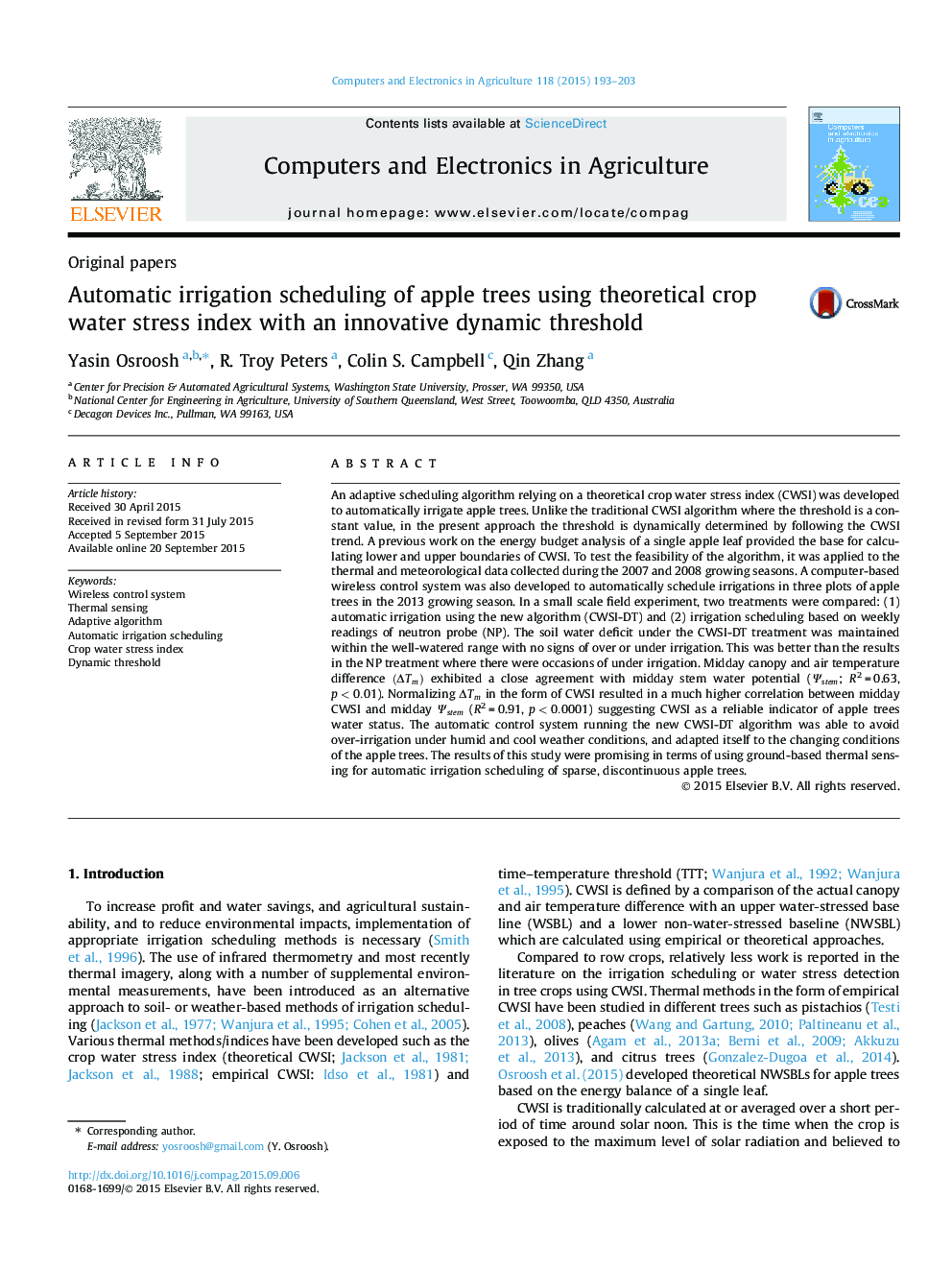| Article ID | Journal | Published Year | Pages | File Type |
|---|---|---|---|---|
| 84088 | Computers and Electronics in Agriculture | 2015 | 11 Pages |
•We developed an irrigation algorithm relying on a theoretical stress index (i.e. CWSI).•A new, variable threshold for the CWSI was developed.•Irrigation water was automatically delivered to the plots of apple trees.•There was a high correlation between midday CWSI and stem water potential.•The algorithm avoided over irrigation on humid, cool, and overcast days.
An adaptive scheduling algorithm relying on a theoretical crop water stress index (CWSI) was developed to automatically irrigate apple trees. Unlike the traditional CWSI algorithm where the threshold is a constant value, in the present approach the threshold is dynamically determined by following the CWSI trend. A previous work on the energy budget analysis of a single apple leaf provided the base for calculating lower and upper boundaries of CWSI. To test the feasibility of the algorithm, it was applied to the thermal and meteorological data collected during the 2007 and 2008 growing seasons. A computer-based wireless control system was also developed to automatically schedule irrigations in three plots of apple trees in the 2013 growing season. In a small scale field experiment, two treatments were compared: (1) automatic irrigation using the new algorithm (CWSI-DT) and (2) irrigation scheduling based on weekly readings of neutron probe (NP). The soil water deficit under the CWSI-DT treatment was maintained within the well-watered range with no signs of over or under irrigation. This was better than the results in the NP treatment where there were occasions of under irrigation. Midday canopy and air temperature difference (ΔTm)(ΔTm) exhibited a close agreement with midday stem water potential (ΨstemΨstem; R2 = 0.63, p<0.01p<0.01). Normalizing ΔTmΔTm in the form of CWSI resulted in a much higher correlation between midday CWSI and midday ΨstemΨstem (R2 = 0.91, p<0.0001p<0.0001) suggesting CWSI as a reliable indicator of apple trees water status. The automatic control system running the new CWSI-DT algorithm was able to avoid over-irrigation under humid and cool weather conditions, and adapted itself to the changing conditions of the apple trees. The results of this study were promising in terms of using ground-based thermal sensing for automatic irrigation scheduling of sparse, discontinuous apple trees.
